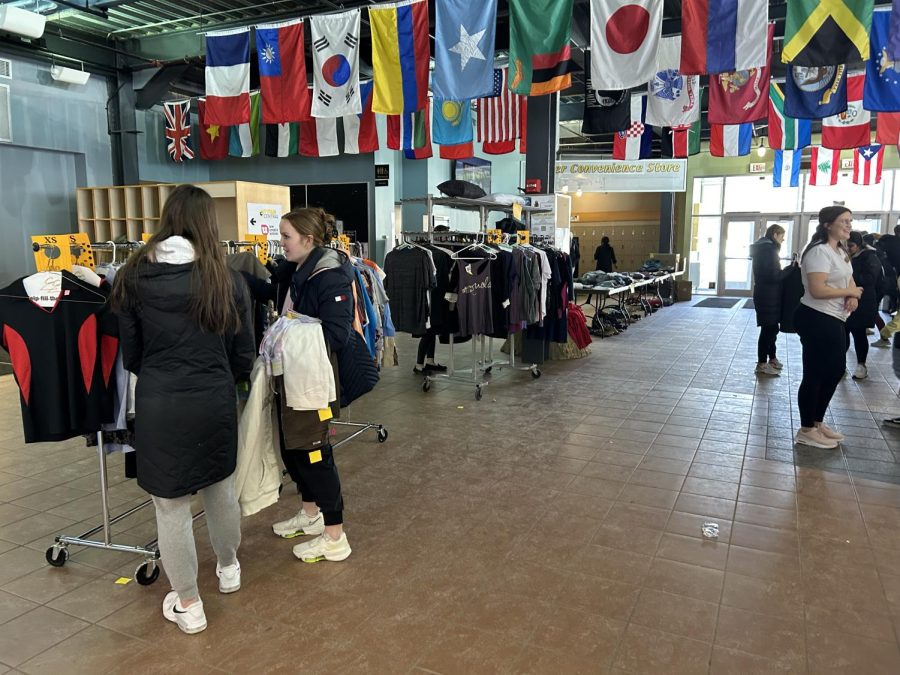Clash Collective helps combat student needs, insecurities
Katie Pulvermacher / The Advance-Titan — Nearly 2,000 items were donated to Clash Collective for a pop-up thrift shop.
February 8, 2023
Over 1,700 items were donated to the Clash Collective Pop-Up Thrift Shop, created to help combat basic needs insecurities for students on- and off-campus.
New Student and Family Programs teamed up with the Sustainability Institute for Regional Transformations (SIRT) to educate students on the idea of reusing items more and buying less.
Associate Director of New Student and Family Programs Alicia Stuedemann, New Student and Family Programs Manager Stacy Dreweck and Campus Sustainability Coordinator Brad Spanbauer said UW Oshkosh already has resources for food, hygiene and professional clothing, but noticed a lack of other items available.
“Some students cannot afford to buy new things every semester, and as an institution committed to sustainability, we are working towards a goal of zero-waste,” they said.
The Department of Residence Life helped collect donations from students living in residence halls after moving out for winter break. They were looking to collect clothing, jewelry, accessories, shoes, hangers and dorm supplies such as lamps, bedding and décor.
Items were also collected from donation stations on campus as well as partners in the community. Staff volunteers helped the days of the event with setup, takedown and checkout.
“An estimated 70-80 pounds of clothing per person ends up in landfills all over the world,” a New Student and Family Programs and SIRT email to all students said. “Help us combat this growing waste by donating.”
Over 500 students picked out items at the Clash Collective Pop-Up Thrift Shop in Reeve Union on Feb. 1 and 2 during Welcome Week. All UWO Students were able to get five items for free per day.
“The event was a success,” Stuedemann, Dreweck and Spanbauer said. “Throughout the event countless students shared with us how deeply appreciative they were for the free items, and many expressed how much this truly helped them to have what they needed, but otherwise would have gone without.”
Prior to Clash Collective, UWO used to run a Move Out program that partnered with local thrift stores.
“Over the years, this program became difficult to maintain because Move Out occurs in May, when students and faculty are both very busy with finals,” they said. “This means it can be hard to find volunteers to staff a donation collection program, and it can be challenging to pay enough individuals to work this kind of operation. Hence why we all got creative here to organize the Clash Collective.”
Stuedemann said they are not sure if the Pop-Up Thrift Shop will run again, but they hope students will continue to reduce and reuse.
“We are hoping that students will take advantage of the effortless process of donating gently used items that they no longer are using rather than tossing them into a landfill,” they said. “That, in particular, is something that our Campus Sustainability Office is spearheading through a variety of collaborations.”














